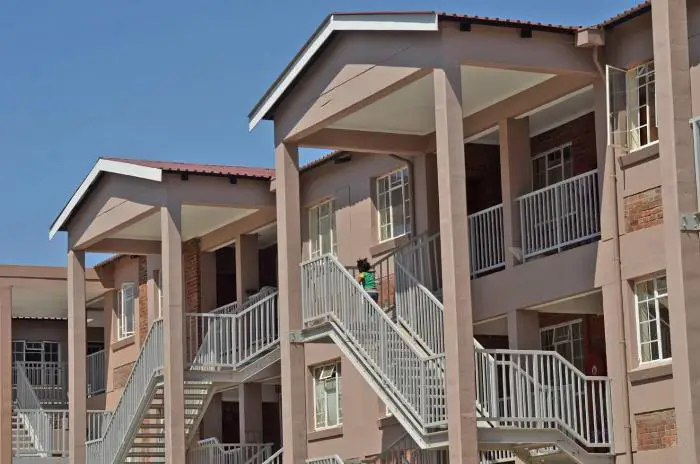Nedbank Corporate and Investment Banking (NCIB) has enhanced Green affordable housing in South Africa after announcing that it had made the first payment from an innovative $9m Sustainable Affordable Housing finance facility, which was put in place through the collaborative efforts of Nedbank’s Affordable Housing Development Finance division, and South Africa’s Green Fund.
The first recipient of funding is Belhar Gardens, a social housing project a based in Cape Town, owned and managed by Madulammoho Housing Association (MHA).
The 630-unit development is the result of a public-private partnership and was made possible through the provision of land, grants and subsidies by the Western Cape Provincial Government and the Social Housing Regulatory Authority (SHRA).
Belhar Gardens is aimed at households with an income of $187.5- $562.5 per month. According to Manie Annandale, Head of Affordable Housing Development Finance at NCIB, it is a prime example of Nedbank’s stated purpose to use its money expertise to do good for individuals, families, communities and businesses in South Africa.
The project is also a case study in affordability, since not only are rentals below market levels and linked to subsidies, but units are also resource-efficient.
This, Annandale explains, is intentionally aimed at containing the total accommodation cost for low-income households, which would have had to bear a heavy utility cost burden.
Renier Erasmus, CEO of MHA, agrees with Annandale also acknowledged that the cost benefit of green affordable homes is not just limited to the initial capital outlay. He pointed out that electricity is one of the largest expenses for the tenants.
Consequently, he was quick to add that the looming inflation tariff hikes would most likely increase energy costs, eventually making it difficult for the tenants to afford their rent.
Erasmus explains that this scenario is where the green energy comes in handy; what with devices such as centralised heat pumps and innovative ceiling insulation technology would make perfect sense for Belhar Gardens and, indeed, all future social housing developments.
Given that resource-saving affordable housing is still a relatively new initiative in South Africa, Annandale explains that the next step in driving the growth of this sector will be to measure and validate the actual cost savings enjoyed by tenants and owners in EDGE certified units when compared to conventional structures.
They are thus working with the Development Bank of Southern Africa (DBSA) to monitor the sustainability performance of a sample of the two types of homes over the coming year. He hopes to release the findings to the market in 2018 with a view to generate a significant surge in demand for green affordable homes going forward.

Leave a Reply